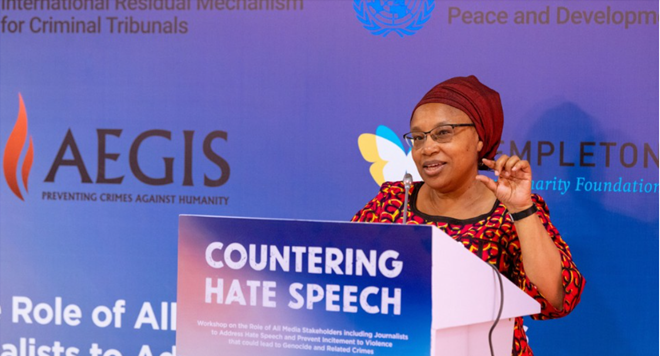To advance national, regional and international efforts to protect populations from genocide, war crimes and crimes against humanity, and their incitement
Synopsis
Objectives
The project seeks to protect populations from genocide, war crimes, crimes against humanity, and their incitement by delivering timely early warning analysis and recommendations, and by strengthening the capacity of community and national actors to identify to identify and take timely action to prevent and address risks of genocide, war crimes and crimes against humanity.
Components
The project supports assessment missions, updates the OSAPG Framework to address emerging issues, and develops educational materials and networks for knowledge sharing and South-South cooperation. It also produces practical frameworks and policy recommendations for preventing ethnic-based violence and promoting peaceful coexistence baseline and organizes workshops to develop and implement policy tools, action plans, and case studies that engage with and strengthen the capacity of specific constituencies who have a key role to play in atrocity prevention.
Main achievements
The project has organized a series of high-level events in Kigali (Rwanda), focused on strengthening global efforts to prevent genocide and related crimes.
The first one, held from 22 to 25 July 2024, consisted of a workshop for journalists and media stakeholders resulted in the adoption of the "Nyamata" Plan of Action, which aims to address hate speech and prevent incitement to violence by journalists and media stakeholders.
A second set of events, held from 4 to 9 November 2024, included:
-
4-5 November 2024: this workshop was on the implementation of the Napoli Plan of Action for Women in Communities to Counter Hate Speech and Prevent Incitement to Violence that Could Lead to Genocide and Related Crimes. It brought together women leaders worldwide and issued a declaration from Sudanese women participants calling for their inclusion in peace processes aimed at addressing the ongoing crisis in their country.
-
6-7 November 2024: this expert consultation on promoting dialogue and mediation to prevent genocide and related crimes developed a Policy Guidance on dialogue and mediation for genocide prevention.
-
8-9 November 2024: this international conference on ethnicity and genocide with academics, civil society, and government officials produced practical frameworks and policy recommendations to prevent ethnic-based violence and promoting peaceful coexistence.
Moreover, the project conducted two technical assessment missions in Rwanda from 21–22 July 2024, and in El Salvador, from 8–9 April 2025 to assess the local context from the perspective of identification of areas of vulnerability for the development of tailored action plans on hate speech for each United Nations Country Team.
Additionally, at the end of June 2025 a Comprehensive Training Manual on the Convention on the Prevention and Punishment of the Crime of Genocide (Genocide Convention) and its Implementation was developed including two training modules : one on the Plan of Action for Religious Leaders and Actors to Prevent Incitement to Violence that Could Lead to Atrocity Crimes (Fez Plan of Action) and one on the Plan of Action for Women in Communities to Counter Hate Speech and Prevent Incitement to Violence (Napoli Plan of Action). The training manual includes examples and case studies from different countries on steps to ratify or accede to the Convention and implementation of national legislation or other measures to give effect to the obligations of the Convention.
Impact
The project provides local, national, and regional actors with practical tools and a framework to build and sustain expertise, including mechanisms to identify and respond to emerging risks. It integrates genocide and atrocity prevention into broader peacebuilding efforts, strengthens UN inter-agency and international partnerships, and expands outreach to new constituencies to promote locally driven approaches to prevention.

Wairimu Nderitu, UN Special Adviser on the Prevention of Genocide speaks at a media workshop, in Kigali, Rwanda, 23-25 July 2024
